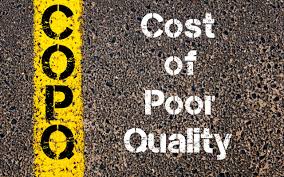Are you unknowingly putting your business at risk by sourcing knock-off electric scooters? The market is flooded with replicas of popular models like Xiaomi and Ninebot. Sure, these scooters might seem like a great deal initially—low prices, familiar designs—but what many B2B buyers don’t realize is that they could be stepping into a legal minefield.
Why is sourcing knock-off electric scooters risky? Simple: patent infringement. Many of these models are protected by intellectual property laws, and selling them without proper licensing can lead to legal battles, heavy fines, and even product recalls.
In this post, we’ll break down the risks associated with sourcing knock-off scooters and how you can avoid them. Trust us—playing it safe can save you a lot of headaches down the road.

What Is Patent Infringement and Why Should You Care?
Patents are legal protections that give inventors exclusive rights to their creations. In the case of electric scooters, brands like Xiaomi and Ninebot hold patents on their designs and technologies. This means that producing or selling scooters that copy these designs without authorization is a violation of intellectual property rights.
But what does this mean for you as a B2B buyer?
If you unknowingly purchase knock-off scooters from an unreliable supplier, you could be held liable for patent infringement. Legal consequences can include:
- Fines: Patent holders can sue for damages, resulting in financial losses.
- Product Seizures: Authorities may confiscate your products at customs, especially if you’re importing to regions with strict intellectual property laws like the US or EU.
- Business Disruption: Recalls and legal battles can halt your operations and tarnish your reputation.
Example: In 2019, several distributors in the US faced legal action for selling unlicensed versions of Xiaomi scooters, leading to hefty fines and product seizures at customs. Learn more about patent infringement cases in the electric scooter industry.
How to Identify Knock-Off Electric Scooters
It’s not always easy to tell when you’re dealing with a knock-off, especially since many of these replicas are designed to look like the real thing. However, there are a few telltale signs that you might be dealing with an illegal copy:
1. Suspiciously Low Prices
If the price of a scooter seems too good to be true, it probably is. Many knock-off suppliers cut corners to offer rock-bottom prices, using subpar materials and avoiding legal costs. Be wary of suppliers offering prices that are significantly lower than the market average. While saving money might seem tempting, it could end up costing you a lot more in the long run.
2. Lack of Certifications and Documentation
Authorized suppliers will have no issue providing certifications and documentation proving their products are compliant with patent laws and safety regulations like EN17128. If a supplier is reluctant to provide these documents, that’s a red flag.

3. Unclear Product Origins
Always ask where the products are manufactured and whether they are authorized by the original patent holders. If the supplier is vague or refuses to answer, they may be selling unlicensed products.
Why You Should Avoid Public Molds and Generic Models
Many knock-off scooters are built using public molds, which are designs available to any manufacturer willing to use them. While this might seem harmless, it’s another red flag. Public molds make it easier for suppliers to produce unauthorized replicas that violate patents.
These scooters tend to have poor quality control, inconsistent performance, and, most importantly, they can still infringe on patents. In fact, many of these models are designed to mimic the most popular scooters on the market, putting you at risk of selling illegal products.
Key takeaway: If you see a scooter that looks suspiciously similar to a popular model, but the price seems too low or the supplier can’t provide documentation, you’re likely dealing with a knock-off. It’s better to steer clear.

The Benefits of Working with Trusted Suppliers Like DriveTron
At DriveTron, we take intellectual property rights seriously. All of our electric scooters are original designs, developed in-house to meet global safety standards and protect you from patent issues. We don’t deal in knock-offs or generic models—we pride ourselves on innovation and compliance.
Here’s how working with DriveTron helps you avoid the risks of patent infringement:
- Original Designs: Our scooters are designed and manufactured with full compliance, so you don’t have to worry about patent disputes.
- Certified Products: All of our models are certified to meet international safety and performance standards, including EN17128:2020.
- OEM/ODM Services: Need something unique? We offer OEM and ODM services to create custom electric scooters that won’t run afoul of patent laws.
Plus, with warehouses in Europe, North America, and Mexico, we ensure fast delivery while avoiding the headaches of patent-related customs delays.
How Can You Protect Your Business from Patent Risks?
- Do Your Research: Always investigate a supplier’s background and reputation. Look for reviews, testimonials, and any history of patent disputes.
- Request Certifications: Make sure the supplier can provide proof of certification for both safety and intellectual property compliance. This is especially important for international buyers.
- Ask for Customization Options: If a supplier offers OEM or ODM services, this is a good sign that they can provide original designs, reducing the risk of patent infringement. At DriveTron, we offer full customization to meet your business needs without infringing on existing patents.
- Avoid Suspiciously Cheap Deals: While price is always a factor in B2B sourcing, be cautious of deals that seem too good to be true. If it’s suspiciously cheap, there’s probably a catch.
Stay Tuned for More Insights!
In the next part of this series, we’ll explore how to avoid low-quality suppliers and what signs to look for when you’re dealing with vendors who cut corners. We’ll also take a closer look at how DriveTron’s global warehouses in Europe, North America, and Mexico help streamline the procurement process for B2B buyers.
Don’t miss it!
Conclusion
Sourcing electric scooters is no small task, and the risks of patent infringement are real. Knock-offs may look appealing, but they can lead to legal issues, product seizures, and financial losses. By working with trusted suppliers like DriveTron, who offer original designs and patent-compliant products, you can protect your business and focus on growth.

